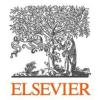Phd Studentship: Astrazeneca Funded Non Clinical Phd Studentship Deciphering Cellular Determinants Of Sensitivity To High Let Radiation To Inform Combination Strategies With Next Generation Targeted Alpha Therapies
Job Description
Supervisors: Professor Sir Steve Jackson and Dr Mark O'Connor (AZ Partner)
Department/location: Cancer Research UK Cambridge Institute (CRUK CI) and the AstraZeneca Discovery Centre
Deadline for application: 17th October 2025
Course start date: 1st October 2026
Project details
Targeted Alpha Therapy (TAT) selectively delivers high Linear Energy Transfer (LET) alpha-particles to cancer cells, maximising efficacy while minimising toxicity. Knowledge about radiation sensitivity, accrued mainly with sparsely ionising low-LET radiation (e.g. X-ray, -ray), demonstrated that genetic backgrounds influence radiation therapy (RT) responses, with DNA-damage response (DDR) pathways critically involved. However, determinants of sensitivity to high-LET radiation, such as alpha particles emitted by TAT, remain largely unexplored.
Emerging data suggest that some cancer cells within the alpha particle emission path only receive sub-lethal levels of DNA damage and can survive. Combining TAT and DDR inhibitors thus has the potential to convert this sub-lethal DNA damage into cancer cell killing.
This project will explore the effects of radioligand therapies on cell viability and DDR activation in established human cell models. The student will perform CRISPR screens to determine factors that affect resistance/sensitivity and follow these up with mechanistic studies of a shortlist of identified targets. These studies may uncover mechanisms of cellular responses, potential biomarkers and additional therapeutic vulnerabilities that underlie the responses of normal and tumour cells to alpha radiotherapy.
References * Awwad, S.W., Serrano-Benitez, A., Thomas, J.C., Gupta, V., and Jackson, S.P. Nurturing a revolution in DNA repair and cancer therapy through CRISPR screens. Nature Reviews Molecular and Cell Biology 2023. 24, 477-494.
- Awwad, S.W., Doyle, C., Coulthard, J., Bader, A.S., Gueorguieva, N., Lam, S., Gupta, V., Belotserkovskaya, R., Tran, T-A., Balasubramanian, S., Jackson, S.P. KLF5 loss sensitizes cells to ATR inhibition and is synthetic lethal with ARID1A deficiency. Nature Communications 2025. 16(1):480.
- Yard, B.D., et al., Cellular and Genetic Determinants of the Sensitivity of Cancer to alpha-Particle Irradiation. Cancer Res, 2019. 79(21): p. 5640-5651.
- Guerra Liberal, F.D.C., et al. High-LET radiation induces large amounts of rapidly-repaired sublethal damage. Scientific Reports 2023. 13, 11198.
- Redmond et al., A potential biomarker of radiosensitivity in metastatic hormone sensitive prostate cancer patients treated with combination external beam radiotherapy and radium-223. Radiotherapy and Oncology 2024. 191, 110063.
Funding Funding includes a stipend for four years, tuition fees (at Home rate only) and an allocation towards project consumables and training.
Eligibility Applications are invited from recent graduates or final-year undergraduates who hold or expect to gain a First/Upper Second Class degree (or equivalent) in a relevant subject.
Applicants with relevant research experience are strongly encouraged to apply.
The position is open to UK citizens, or overseas students meeting the UK residency requirements, or able to cover the difference in international fees through additional funding awards.
How to apply
Please apply via the University Applicant Portal. For further information about the course and to access the Applicant Portal, visit:
You should select to commence study in October 2026.
Deadline
The closing date for applications is 17th October 2025 with interviews expected to take place in the week beginning 5th January 2026.
Please quote reference SW47205 on your application and in any correspondence about this vacancy.
The University actively supports equality, diversity and inclusion and encourages applications from all sections of society.
The University has a responsibility to ensure that all employees are eligible to live and work in the UK.
Further information
Skills Required
MNCJobs.co.uk will not be responsible for any payment made to a third-party. All Terms of Use are applicable.
Job Detail
-
Job IdJD3684351
-
IndustryNot mentioned
-
Total Positions1
-
Job Type:Full Time
-
Salary:Not mentioned
-
Employment StatusFull Time
-
Job LocationCambridge, United Kingdom
-
EducationNot mentioned



